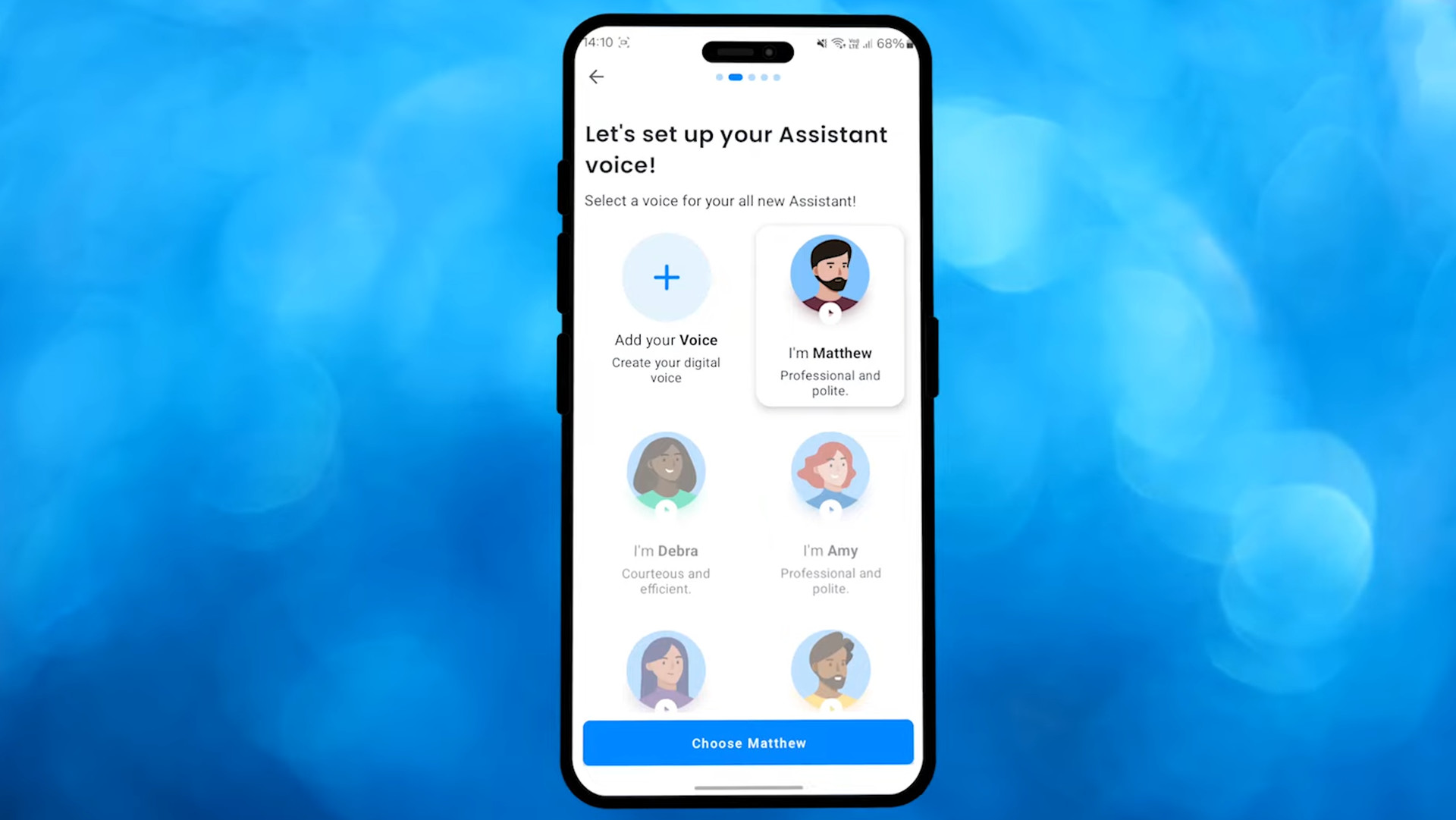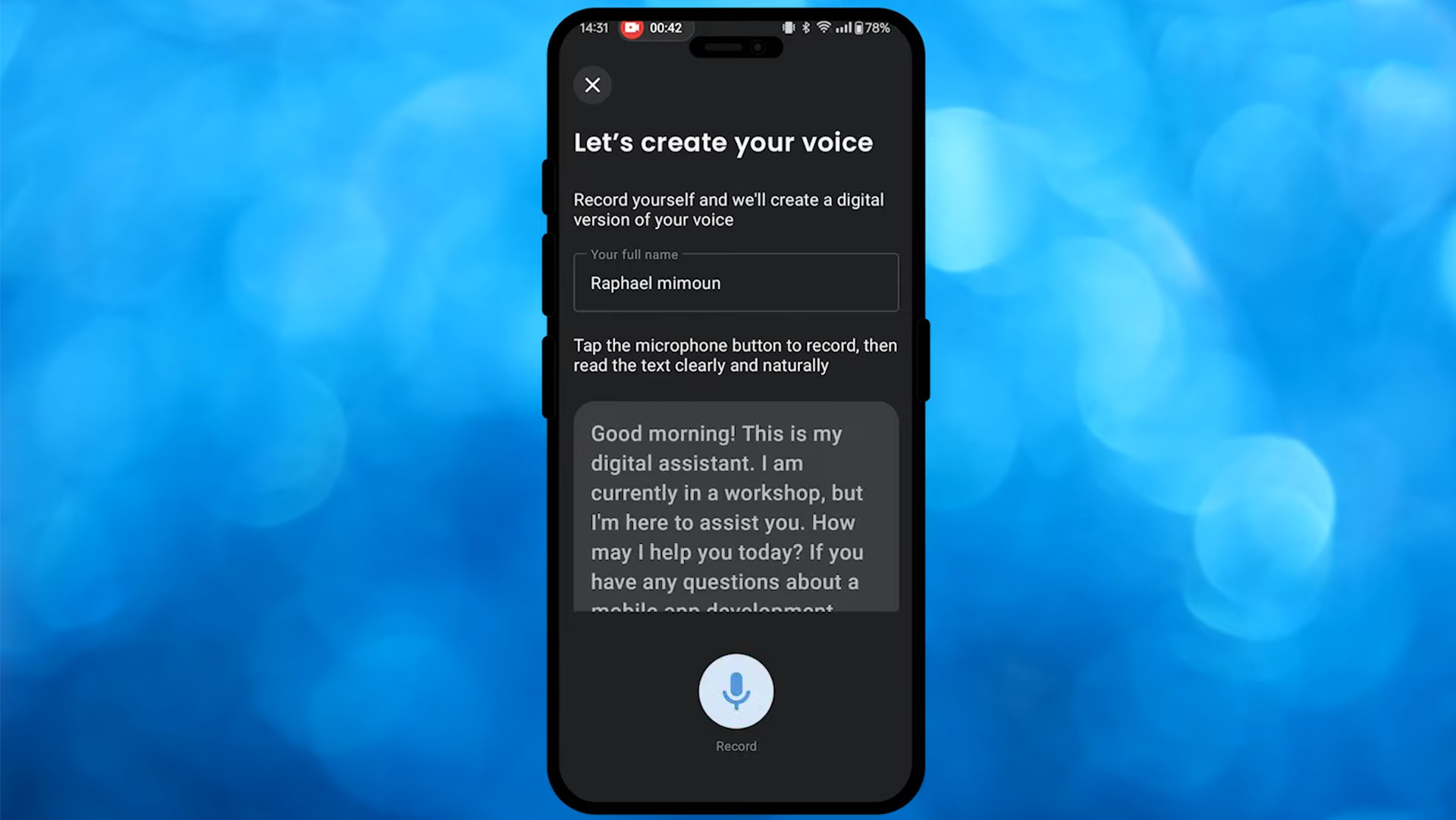Truecaller's new feature can turn your voice into a personal secretary
Thanks to the help of Microsoft's latest Azure AI tech

Sign up for breaking news, reviews, opinion, top tech deals, and more.
You are now subscribed
Your newsletter sign-up was successful
Caller ID service Truecaller is giving users the ability to create a digital assistant that has their voice and can respond on their behalf. If you’re unfamiliar with the app, Truecaller launched its AI Assistant feature in 2022 to screen phone calls and take messages, among other things. Up to this point, it utilized pre-made voices, but thanks to the power of Microsoft’s Azure AI Speech, you can now use your own.
Setting up your voice within Trucaller is quite easy; you just need a subscription to Truecaller Premium, which is $9.99 a month per account. Once that is set, the software will immediately ask you to select an AI assistant – but instead of picking one of the pre-made personalities, select "Add your Voice."
You’ll then be asked to read a consent sentence and a brief training script out loud into your smartphone’s microphone. Doing so ensures the AI has a voice that mimics your “speaking style.” When done, Truecaller states that Microsoft’s Azure Custom Voice begins to process the recording to create a “high-quality digital replica.” The app will give you a demo sound bite to help you imagine what it’ll sound like when someone calls you.

Robo-voice
Keep in mind the technology isn’t perfect. While the digital assistant may sound like you, it does come across as rather robotic. The company published a YouTube video on its official channel showing what the AI sounds like. Admittedly, the software does a decent job at mimicking a person’s vocal inflections; however, responses still sound stiff. That said, it is an interesting and interactive way to screen calls as they come in, especially when stopping spam ones.
Keep an eye out for the patch when it arrives, as we tried to create our own digital secretary on our Android but couldn’t since we didn’t receive the feature as of yet. It’s unknown exactly when and where the update will be available. TechCrunch claims the tool will roll out “over the next few weeks” as a public beta across a small selection of countries. These include, but are not limited to, the US, Canada, Australia, and Sweden. Soon after, it’ll become widely available “to all users in the eligible markets.
We also reached out to Truecaller with a couple of questions, including how recordings are stored, whether they are saved on the device or uploaded to company servers, and more. If we hear back, this story will be updated.
While we have you, check out TechRadar's round up of the best encrypted messaging apps on Android for 2024.
Sign up for breaking news, reviews, opinion, top tech deals, and more.
Update: A company representative told us voice recordings are indeed uploaded to Microsoft service. Microsoft creates a profile encoding all of the "voice characteristics of the user" to make the AI voice. So if you don't want to share your voice with Microsoft, this may not be for you.
The same representative told us there are plans to roll out the update to iOS "during the next quarter".
You might also like

Cesar Cadenas has been writing about the tech industry for several years now specializing in consumer electronics, entertainment devices, Windows, and the gaming industry. But he’s also passionate about smartphones, GPUs, and cybersecurity.